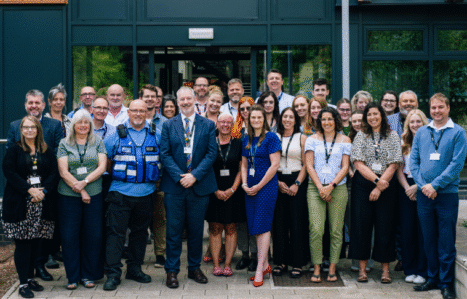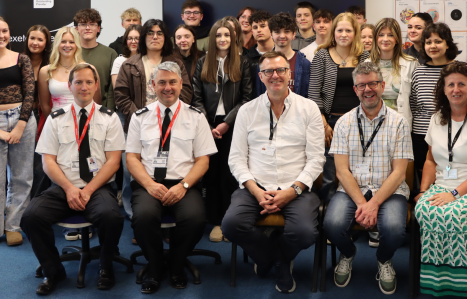Exeter College students on their remote learning experiences
Although the Exeter College sites are closed to the majority of learners, exceptional learning continues remotely for our students.
Thanks to our innovative teaching staff, hard working students and college-wide adoption of digital learning technologies, students are being supported with interactive study sessions as home, as well as independent activities to continue their education.
“Teachers have been calling us online. This is especially useful for a subject like Spanish, where we must keep practising our speaking,”
Sam Pestridge, Exeter College Student
For our next generation of students, we have also brought forward our Flying Start campaign. This is our suite of pre-enrolment learning content designed to help year 11 students make the best possible start to starting a full time course with Exeter College in 2020.
Digital Learning
Our teachers have long been incorporating digital technology into their classrooms as part of our status as a Microsoft Showcase College. Since the Government’s closure of schools and colleges in response to the Coronavirus pandemic, our plan for delivering exceptional education online launched and students are being support to continue their progress from the comfort of their own homes.
But how are pupils finding this shift to remote, digital learning? We caught up with a few of them to find out how they’re getting on…
Tom Matthew: new flexibility

“Despite all the uncertainty with the current situation, the transition to home learning has been smooth. It has been good to have some continuity and a reason to force some structure into what could be empty days. It has also been a bonus to be able to set my alarm 90 minutes later than usual and still be ready to work at 9am!
“So far my teachers have sent me PowerPoints, videos, practise questions and articles. Learning from home comes with new flexibility, which I have enjoyed. I can stick at something for as long as I want and switch to different ways of learning depending on what works best for me, and my teachers have supported me in doing that.
“I have been able to ask my teachers more and better questions over email than I would in the classroom.”

Sam Pestridge: teaching approaches
“All my teachers have been creating PowerPoints that we can work through. My politics teacher records herself speaking over the presentation; it’s almost like being in class.
“Teachers have been calling us online. This is especially useful for a subject like Spanish, where we must keep practising our speaking.
“All of my teachers are very supportive. They are there ready to reply to emails or over OneNote if we need them.”

Bayleigh Bewes: being supported
“I’ve set up a little desk with all my notes on to help me focus on schoolwork.
“My teachers and tutor regularly email or message to keep us up to date and check on us to make sure we’re doing okay academically, mentally and emotionally during this confusing time.”
Ella Edmonds: staying motivated
“The most important thing I’ve found to stay motivated is to keep a good structure. I work on my classes at the same time I would if it were a typical College day, taking my breaks at the same time too. This is an excellent way for me to stay motivated since it means that I can set time limits and not end up over/underworking each day.

“I have also found that music is helpful for me because I struggle to focus when it’s silent.
“Making time each day to talk to people has been so important. I talk to my friends daily to stay positive and feel less lonely. I also love spending every day with my dog!”
If you would like to share how your remote learning is going, email us on marketing@exe-coll.ac.uk, or tag us in your posts using #ExeCollTogether.
Want to join Ofsted Outstanding Exeter College in September 2020? Apply online now to secure your place.










